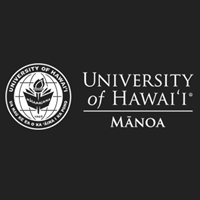Below is a summary of the abstract you submitted. Presenting author(s) is shown in bold.
If any changes need to be made, you can modify the abstract or change the authors.
You can also download a .docx version of this abstract.
If there are any problems, please email Dan at dar78@pitt.edu and he'll take care of them!
This abstract was last modified on May 19, 2021 at 7:40 p.m..

Using the SEA-PHAGES genome annotations as an entryway, we have expanded our SEA-PHAGES bioinformatics course to provide students with a structured but self-guided independent research experience. Based on the SEA-PHAGES framework, the first third of our course is structured to introduce students to working with genomic data through bioinformatic analyses and genome annotation. This process culminates in students proposing and conducting their own independent research projects based on their knowledge base and particular research interests. Specifically, building off of their newly developed bioinformatic skills, students explore primary literature to expand their basic understanding and begin to identify gaps in the scientific knowledge surrounding phage genomes. After the annotation phase of the course, students individually identify broad areas of interest based on these literature explorations. Based on shared interests, students are then placed into research groups of three to four students to collaborate on developing a research question, testable hypotheses, and an appropriate experimental approach. A strength of this approach is that students are allowed to follow their interests, which promotes student investment in the project, self-motivation in completing the work, and shared interests promotes a collaborative atmosphere. First and foremost, students get to pursue a diversity of research topics, ranging from phylogeography, molecular evolution, protein structure and function, links between gene evolution and viral ecology, to name a few. To promote science communication, students are tasked with presenting their scientific research in both oral and written formats. Research paper components are scaffolded throughout the semester, with students working on each major section individually and getting both instructor feedback and peer-reviews before completing a final draft. Finally, students communicate their research at the end of semester during the UH-SEAsymposia and submit a completed scientific paper summarizing their research projects. By incorporating this approach, we have further enhanced the beneficial outcomes of the SEA-PHAGES program on students, as reflected by consistently higher scores across all PITS assessment metrics, particularly for project ownership and self-identifying as a scientist.
